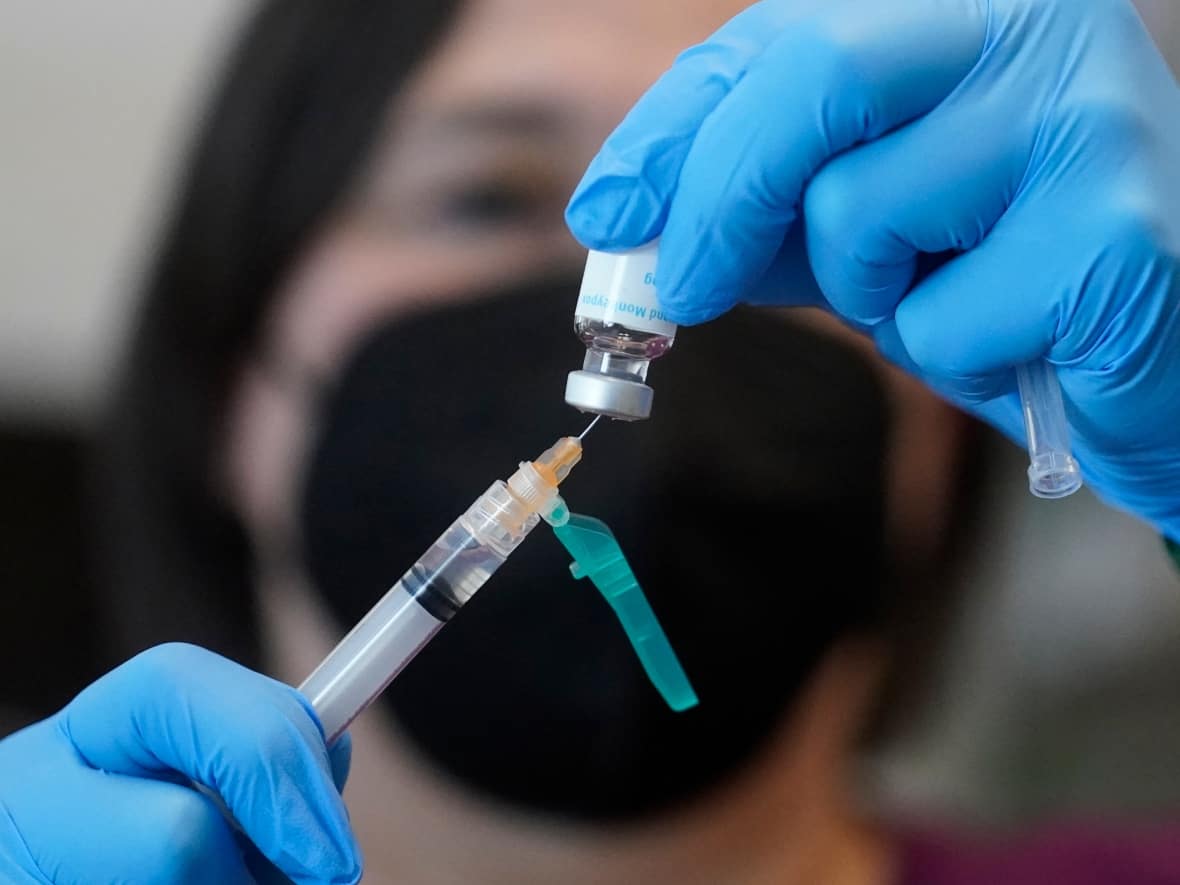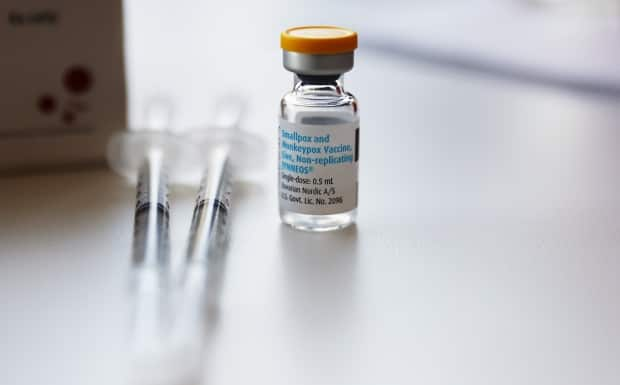Canada not shifting to stretch supply of monkeypox vaccine yet

Canada will not yet shift its approach to administering monkeypox vaccines to allow them to be divided up into much smaller doses, which the U.S. has done in order to vaccinate many more people than the current strategy.
Chief Public Health Officer Dr. Theresa Tam said during a press conference Friday that Canada has no plans right now to recommend changes to the vaccination strategy to allow for fractional doses to be administered across the country.
"We've been connecting, of course, with our U.S. colleagues to look at their strategy and see if we can gather as much information as we can. There's limited data, but I think it is an important approach to explore," she said.
"But for now, working together with the National Advisory Committee on Immunization (NACI), we're really pushing out the approach of one dose first to reach as many people as possible in our most highly impacted populations, and we will be looking at the interval and the timing and need for that second dose."
WATCH | U.S. moves to stretch monkeypox vaccine supply with smaller doses:
The U.S. shifted its vaccination strategy earlier this week to allow for the use of just one fifth of a full dose of the vaccine, made by the Danish company Bavarian Nordic, to stretch out supply and cover more people after the approach was deemed safe and effective.
The vaccine will now be delivered into the skin in the U.S. rather than deeper into a muscle, after the U.S. Food and Drug Administration issued an emergency use authorization that allowed for the use of fractional doses of the vaccine to people aged 18 and older.
Vaccine supply a challenge, virologist says
"Looking at the global picture, our biggest challenge right now is vaccine supply," said Alyson Kelvin, a virologist at the Vaccine and Infectious Disease Organization at the University of Saskatchewan in Saskatoon.
"There's limited supply worldwide, so we need to find strategies for containing the virus and its outbreaks, and one of those strategies is dose sparing, which is basically the approach the U.S. has taken here."
Kelvin said that evidence shows intradermal administration of the vaccines just under the skin provide a "very robust response" with the monkeypox vaccine, also known as Imvamune.

"Considering that we want to protect as many people as possible and contain the outbreak, this does seem reasonable in a situation where there's limited vaccine supply compared to the number of cases or the trajectory of cases," she said.
"We have a lot less cases than the U.S. So I don't know how that compares to our vaccine supply."
The Public Health Agency of Canada (PHAC) has repeatedly declined to provide the number of monkeypox vaccines Canada has in the national stockpile, citing security concerns, despite providing that number for other vaccines and other countries sharing that information.
Tam said Canada has so far deployed 99,000 vaccines to provinces and territories.
"What we want to do is watch the communities that are getting the intradermal strategy and see how protective it is, and have cases been able to be curved by this," Kelvin said.
"And if we're in that situation where we find that we have not enough vaccines to go around to protect those who need it, then it would be reasonable to look at that as a strategy moving forward."
More than 1,000 cases in Canada
There are now 1,059 monkeypox cases across Canada, with the bulk of them in Ontario and Quebec, amid a growing global outbreak that has spread to dozens of countries around the world in the past few months.
Tam said Canada will soon move to testing wastewater in different regions of the country to better track the spread of the disease, also known as MPXV, building off the infrastructure developed to monitor COVID-19 in the pandemic.
"Moving forward, it could form part of our monitoring of the disease activity going up and down across the country," she said, noting that the National Microbiology Lab in Winnipeg had developed a new method to detect the virus in wastewater. "We've now landed on something that can probably be utilized more broadly."
WATCH | Canada records more than 1,000 monkeypox cases:
In Canada and around the world, the current outbreak of the disease has overwhelmingly affected men who have sex with men and can cause painful lesions that take weeks to heal.
Tam said more than 99 per cent of MPXV cases in Canada are in men and the median age of those infected is 35. Late last month, the PHAC urged gay and bisexual men to practise safe sex and limit the number of sexual partners, in an effort to slow the spread of the virus among sexual networks.
Globally, Tam said there are now more than 31,000 cases reported in more than 91 countries, with a 19 per cent increase in cases this week over the previous week.
Tam said that it was "too soon to tell" if cases were slowing or plateauing in Canada, although there may be "some early signs" that cases are not increasing at the same rate as at the beginning of the outbreak.
World Health Organization Director-General Tedros Adhanom Ghebreyesus classified the outbreak as a global emergency late last month, calling the rapid spread of the virus worldwide an "extraordinary" situation.


